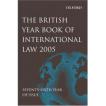|
Geopolitical ExoticaImportantly, in the process it also ignored the different worldviews within which the Mongol and Manchu emperors interacted with Tibet (see Klieger 1994; Norbu 1990; Shakya 1999). Unlike the British, who used "suzerainty" and "autonomy" to designate Sino-Tibetan relations, since 1905 the Chinese have consistently argued that China's position is that of a sovereign and not a suzerain (see Carlson 2004, 2005). At the beginning of the twenty-first century, even though there is no space for "suzerainty" within international law and politics and all the states recognize the Chinese claim of "sovereignty" over Tibet, the pro-Tibet lobby contests this affirmation of sovereignty by highlighting the difference between suzerainty and sovereignty within international law. As Oppenheim argued: "Suzerainty is by no means sovereignty. It is a kind of international guardianship, since the vassal State is either absolutely or mainly represented internationally by the suzerain State" (in Van Praag 1987, 107). IMPERIALISM AND THE CONSTRUCTION OF MODERN TIBET The genealogy of the modern idea of sovereignty as it was transplanted in the non-Western world reveals its close connection with European imperialism ...» | Код для вставки книги в блог HTML
phpBB
текст
|
|




 Точилка Berlingo механическая "Яблоко".
Точилка Berlingo механическая "Яблоко". Корзина для белья "Виолетта" (30 литров).
Корзина для белья "Виолетта" (30 литров).


